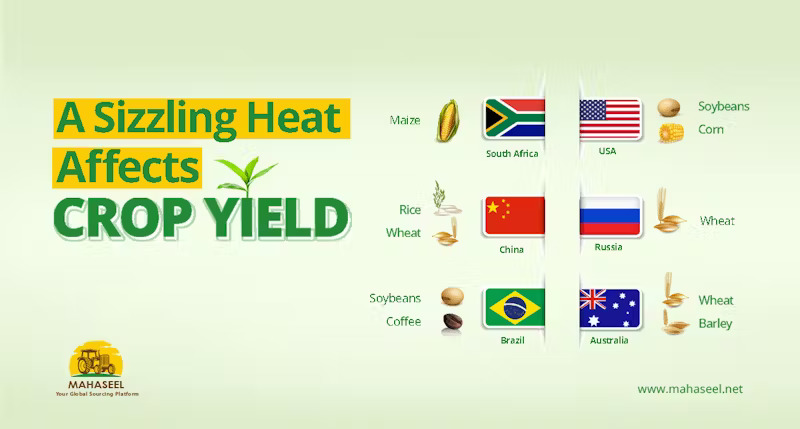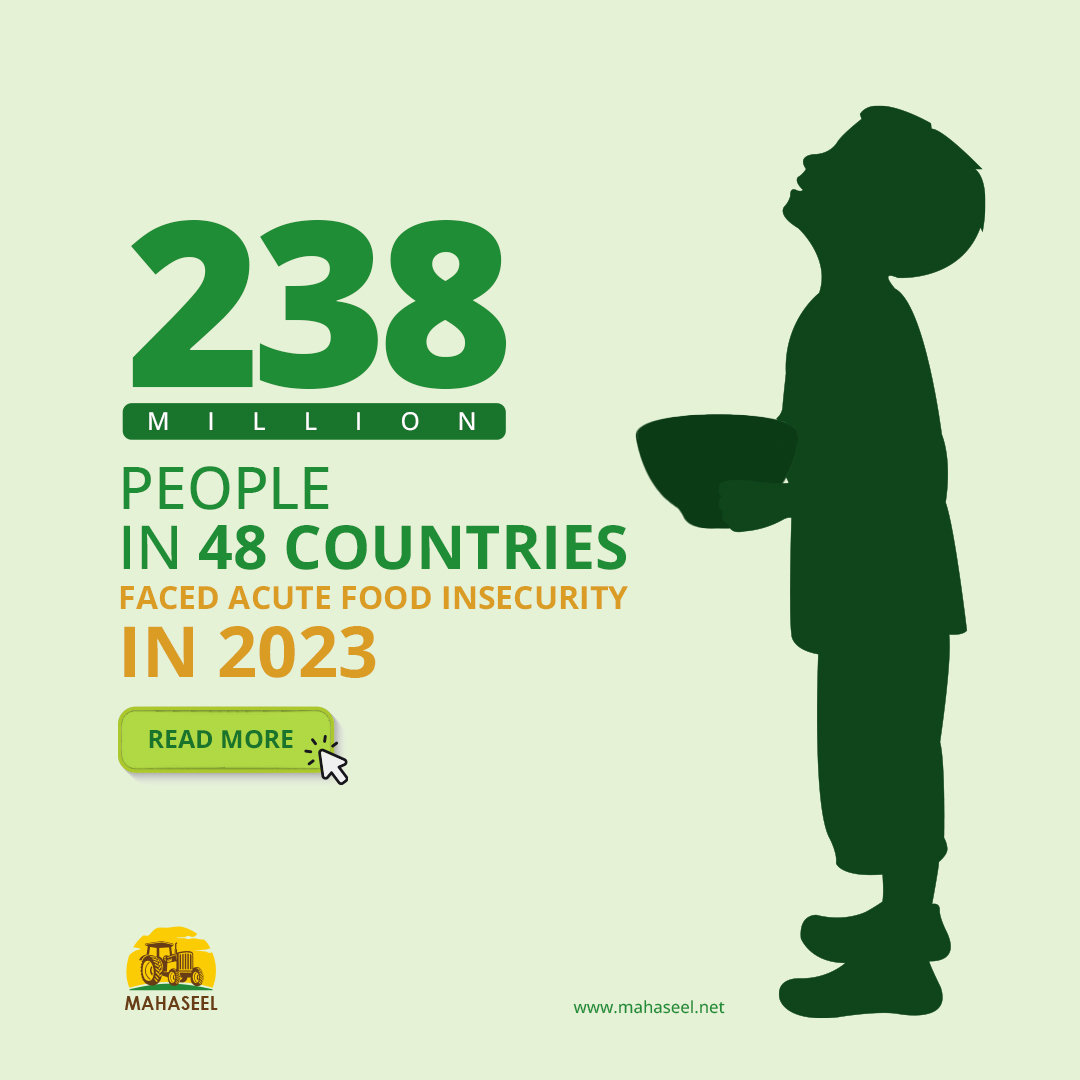by admin
Share
Share

As the scorching summer of 2023 swept across the world, the planet witnesses the most devastating heat waves in recent history. For the global agriculture business, this extreme weather event poses unprecedented challenges, testing the resilience of crops and agricultural systems worldwide.
Some countries faced more severe consequences than others, with India, Australia, Brazil, the United States, South Africa, Russia, and China being the top countries affected by water scarcity and reduced yield during this year’s heat wave.
The heat and extreme weather conditions had varying impacts on different agricultural products, leading to reduced yields in essential crops produced in those countries. India faced yield challenges in rice, wheat, and sugar cane, while Australia’s wheat and barley production fell short.
Brazil’s soybean production suffered from heat stress and potential disruptions caused by wildfires in some regions of the Amazon rainforest, while its coffee producers experienced adverse effects on coffee plantations. In the United States, corn crops, especially in the Midwest and Western states, and soybeans were the most affected by this year’s heatwave.
South Africa’s maize production, a crucial staple crop, was affected by water scarcity, impacting food security, while Russia and China’s wheat production were alarmingly reduced.
🌽 Heat Wave’s Impact on Crop Production
The excessive heat and prolonged drought conditions highlight the heat wave that took a toll on crop production, manifested in reduced yields, delayed growth, and occasional complete failure in some regions. High temperatures led to plant heat stress, inhibiting proper pollination and grain formation. The lack of adequate moisture further compounded the issues, with water stress significantly impacting crop health. Countries heavily reliant on staple crops such as wheat, corn, and rice experienced the most substantial setbacks in food production.
💧 Water Scarcity and Irrigation Woes
One of the most alarming consequences of the heat wave was the strain it put on water resources. Drought conditions became widespread in various regions, affecting both rain-fed and irrigated agriculture. With reservoirs drying up and groundwater levels declining, irrigation became increasingly challenging for farmers.
Countries heavily reliant on irrigation for agriculture saw reduced water availability for their crops. This further exacerbated the food security concerns in many regions and prompted calls for more sustainable water management practices.
💰 Impact on Global Food Prices and Trade
The heat wave’s repercussions on agriculture were not confined to the countries directly affected by extreme temperatures. The reduced crop yields and livestock losses in major producing regions sent shockwaves through global food markets. As the demand for key agricultural commodities exceeded supply, food prices surged, impacting vulnerable populations and countries heavily reliant on food imports.
International trade in agricultural products also faced disruptions. Exporting countries with reduced yields had less surplus to sell, leading to reduced availability in the global market. Importing countries had to grapple with rising costs and limited supplies, adding to the challenge of maintaining food security.
The heat wave of 2023 had far-reaching implications for the global agriculture industry, affecting crop production, water resources, and trade. The event underscores the urgent need for climate-resilient agricultural practices, sustainable water management, and international cooperation to address the challenges posed by extreme weather events and safeguard global food security. As the world tries to move forward, the lessons learned from this heat wave must inform agricultural policies and practices to build a more resilient and sustainable future for the agriculture industry.
The Relationship between Climate Change and Food Security In the […]
After five years of negotiations between the two counterparts, Egypt […]
The Minister of Agriculture and Land Reclamation, El Sayed El […]
Abu Dhabi, December 25, 2022 – Emirates International Investment Company […]



